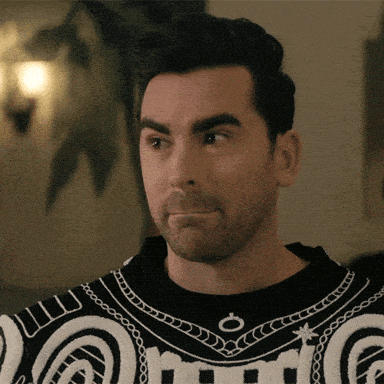Gen Z Broke the Marketing Funnel
Truth? Or just another example of "generation blaming"?

Did You Know? 61% of consumers find influencers with “relatable personalities” to be most appealing vs. just 43% with “expert personalities” and 32% with “just-for-fun personalities.” (Source)
As a Millennial whose generation long has drawn the ire of generations who came before us, it brings me no little pleasure to announce the passing of the torch to Gen Z, who we officially now can blame for society’s many woes.
A live look at Millennials just hearing the news:

The generational blame game is nothing new. Hell, even Socrates bashed the materialistic, disrespectful youth of the 5th-century BCE.
The children now love luxury; they have bad manners, contempt for authority; they show disrespect for elders and love chatter in place of exercise. Children are now tyrants, not the servants of their households. They no longer rise when elders enter the room. They contradict their parents, chatter before company, gobble up dainties at the table, cross their legs, and tyrannize their teachers.
I can hear Socrates now.
“Back in my day, we didn’t have catapults! We laid siege to cities by repeatedly ramming heavy logs into fortified walls from extremely close range. You know, like men!”
Last week, Vogue Business published an article based on research from US youth culture agency Archrival (with input from industry experts) exploring how Gen Z has disrupted the traditional four-stage marketing funnel:
Awareness
Interest
Desire
Action
Their conclusion:
“That consumer funnel was built for the old world — and Gen Z doesn’t live there anymore.”
In yesterday’s edition of Data-Driven Marketing, we looked at how the power and ubiquity of mobile phones gave rise to the 4 types of micro-moments—those intent-rich moments when a person turns to their device to act on a need—to know, go, do, or buy.
Today, people are immersed in a digital world almost constantly bombarding them with content and information. Smart brands are using those brief “intent-rich” moments, when they have their audience’s extremely valuable (and limited) focus, to connect with buyers and show their stuff.
But does that really mean the marketing funnel is broken?
No, the marketing funnel isn’t broken
At its simplest, the purpose of marketing is to connect and build relationships with your target audience with goal of driving sales.
Also at its simplest, the purpose of a marketing funnel is to organize messaging and content in order to move your target audience through a logical flow with the goal of driving sales.
Modern technology hasn’t broken the marketing funnel, but it has changed how a funnel strategy is executed.
Before Google introduced the concept of micro-moments back in 2015, when mobile devices made up a small percentage of web traffic, marketing funnels were a lot more linear.
Buyer becomes aware of a brand, possibly joining an email list.
Brand repeatedly markets to buyer, building awareness and trust.
Buyer becomes interested in brand and its products.
Brand convinces buyer to make a purchase.
Brand markets to customer, building loyalty.
That same general approach still holds true today, except your audience’s constant exposure to new information, brands, and products means their experience often is less linear and requires more reinforcement.
Micro-moments don’t replace the funnel. They give strategic brands unique opportunities to introduce themselves to their target audience and serve them messaging from the brand’s funnel.
If there’s anything Gen Z broke, it’s a brand’s ability to put up a facade
Growing up with constant noise and myriad options, Gen Z has become more skeptical and distrusting of brands than Millennials.
Another study, this one from from 2022 and conducted by Survey Monkey, found that Gen Z places far more emphasis on brand authenticity (32% vs 24%) and brand transparency (25% vs 16%) than Millennials.
What does this mean for the future of marketing?
Authenticity reigns supreme.
Check out these data points from a survey conducted by Matter Now and published in February 2023:
69% of consumers are likely to trust a friend, family member, or influencer recommendation over information coming directly from a brand.
61% of consumers find influencers with “relatable” personalities to be appealing, followed by 43% with “expert personalities,” 32% with “just-for-fun personalities,” and 28% with “aspirational personalities.”
11% of consumers prefer celebrity influencers, down from 17-22% in 2020.
Those stats include all consumers, not just Gen Z, but they show the direction in which consumers are moving, and, in many ways, Gen Z is leading that charge.
Plus, is Gen Z even the generation to blame for these shifts?
Which of these groups sounds more responsible for today’s digital world:
The generation that grew up with the tech…
Or the generation that invented it?
Definitely the latter, right?
Wait a minute…
Platform | Founder | Birth Year |
|---|---|---|
Mark Zuckerberg | 1984 (Millennial) | |
Kevin Systrom Mike Krieger | 1984 (Millennial) 1986 (Millennial) | |
Jack Dorsey Evan Williams Biz Stone Noah Glass | 1976 (Gen X) 1972 (Gen X) 1974 (Gen X) 1981 (Millennial) | |
TikTok | Zhang Yiming | 1983 (Millennial) |
Ben Silbermann | 1982 (Millennial) |
Ah, shit.

Everyone say, “Hi!” to Steve H 👋
Question: What’s the most bizarre keyword you’ve ever optimized for in SEO?
Steven H’s Answer: “I once worked with a client who owned a business selling unusual products and had to optimize for the keyword edible insects.”
ChatGPT-Generated Joke of the Day 🤣
What do you call a fish with no eyes?
Fsh.
Suggest a topic for a future edition 🤔
Got an idea for a topic I can cover? Or maybe you’re struggling with a specific marketing-related problem that you’d like me to address?
Just reply to this email and describe the topic.
There's no guarantee I'll use your suggestion, but I read and reply to everyone, so have at it!


